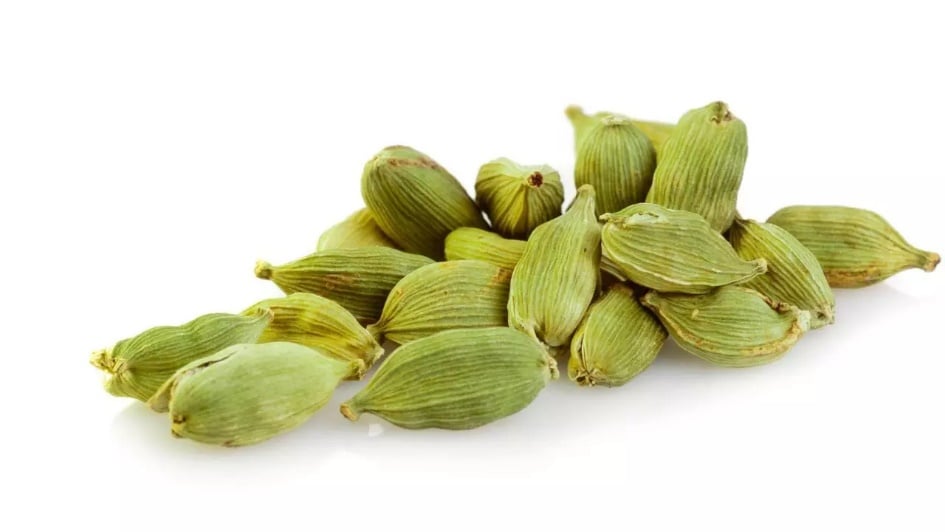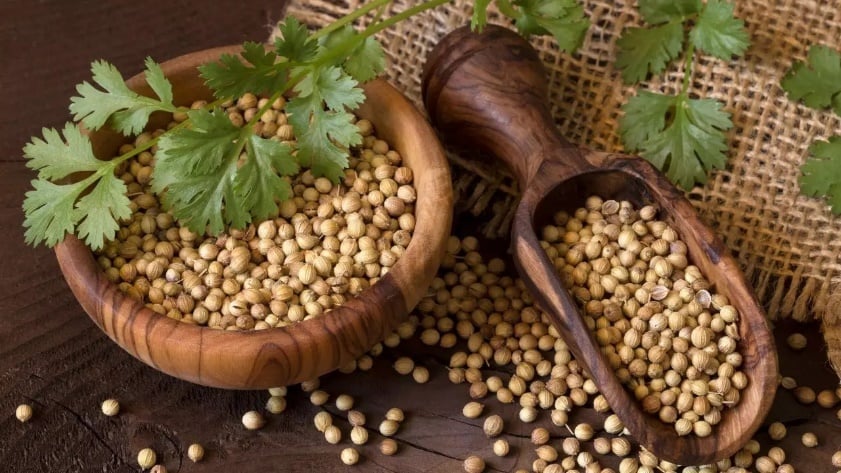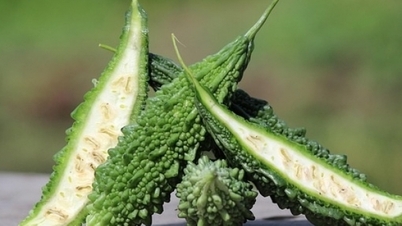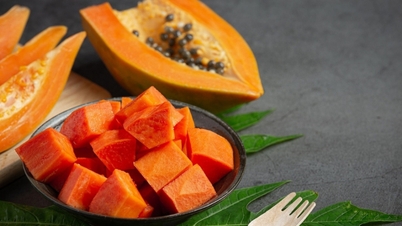Today, a healthy diet is not just about choosing fresh, clean foods, but also about harnessing the power of herbs and spices. These ingredients are needed in small amounts but are rich in antioxidants and anti-inflammatory properties. For example, piperine in black pepper, curcumin in turmeric or eugenol in cloves, not only improve flavor but also have the potential to prevent chronic diseases such as cancer, diabetes and cardiovascular disease.
Adding a variety of herbs and spices to your daily meals also helps reduce salt, sugar and processed chemical intake, while improving overall health naturally and sustainably.
Here are 12 of the healthiest spices and herbs worth adding to your diet:
1. Black pepper – a potential anti-cancer spice
According to information posted on TOI, black pepper contains piperine, a compound that gives it its characteristic flavor and is also being studied for its anti-cancer potential.
Laboratory studies have shown that piperine can trigger apoptosis – the self-destruction of damaged or abnormal cells, helping to reduce the risk of cancer cell formation. Experiments on cell models have shown that piperine is effective on some common cancers such as breast, prostate, lung and ovarian cancer.
However, clinical studies on humans are still underway to determine the true effectiveness. Nevertheless, using black pepper in your daily diet not only enhances the flavor but also contributes to long-term health benefits.
Black pepper – a potential anti-cancer spice.
2. Cardamom – a spice good for the heart and digestion
Cardamom is a spice rich in antioxidants, which help protect cells from oxidative stress and support heart health.
Some preliminary studies suggest that cardamom may help lower blood pressure in people with metabolic syndrome or high blood pressure. Additionally, compounds in cardamom have the potential to aid digestion and regulate blood sugar levels.
While more clinical studies are needed to determine the exact extent of the effects, adding cardamom to your daily diet not only adds flavor but also provides long-term health benefits naturally.
Cardamom is rich in antioxidants, which help protect cells from oxidative stress and support heart health.
3. Cayenne Pepper – Heart and Metabolic Benefits
Cayenne peppers contain capsaicin, the compound that gives them their spicy taste and has been studied for its ability to stimulate fat metabolism, aid weight control and heart health.
Some studies have shown that regular consumption of spicy foods may be associated with a lower risk of death overall. Capsaicin also has the potential to prevent blood clots, which may help protect blood vessels. However, people with gastroesophageal reflux disease (GERD) should use it with caution to avoid stomach irritation.
Capsaicin in chili peppers has the potential to prevent blood clots from forming, helping to protect blood vessels.
4. Cinnamon – natural sweet spice, supports blood sugar and cardiovascular health
Cinnamon is a naturally sweet spice that can help reduce the need for added sugar in your daily diet. Research shows that cinnamon can reduce fasting blood sugar levels and improve insulin resistance in people with type 2 diabetes.
In addition, regular consumption of cinnamon can also help reduce blood pressure thanks to its vasodilating effects, improve blood circulation, and contribute to protecting cardiovascular health.
5. Cloves – anti-inflammatory and health benefits
Cloves are commonly used in sweet and savory dishes. They are rich in eugenol, a powerful antioxidant that helps reduce oxidative stress and inflammation in the body.
In traditional medicine, cloves are used to relieve pain and support joint health. Modern laboratory studies have also demonstrated that eugenol has anti-inflammatory and cell-protective effects, providing a scientific basis for these traditional uses.
Clove.
6. Coriander – a spice that supports brain function
Coriander seeds, commonly used in curries and stews, contain the compounds linalool and geranyl acetate. Preliminary studies suggest that these compounds have the potential to protect brain function, helping to reduce the risk of cognitive decline and certain neurological diseases such as Alzheimer's.
However, more human clinical studies are needed to confirm the effectiveness, but adding coriander to your diet not only adds a distinctive flavor but also contributes to brain health in a natural way.
Coriander seeds.
7. Garlic supports immune function
Garlic is not only a popular culinary spice, but it has also been studied for its medicinal properties. The sulfur compounds in garlic may help lower blood pressure, with some studies showing it to be as effective as low-dose medication.
Additionally, garlic supports immune function, helping to protect the body against common infections, such as the flu. Adding garlic to your daily diet not only adds flavor but also provides long-term health benefits.
8. Ginger – a warm, spicy spice that reduces inflammation and aids digestion
Ginger is well known for its ability to relieve nausea, including nausea caused by morning sickness and motion sickness. The compounds gingerol and shogaol in ginger have anti-inflammatory properties, similar to the effects of ibuprofen in relieving pain.
Ginger can also help relieve migraines, menstrual cramps, and the uncomfortable symptoms associated with arthritis. Adding ginger to your daily diet not only adds flavor but also provides natural health benefits.
9. Oregano – anti-inflammatory and heart-protective herb
Oregano is an herb rich in antioxidants such as carvacrol and thymol, which are known for their antibacterial and antifungal properties. Oregano can help fight infections, reduce inflammation, and play a positive role in protecting heart health.
Some preliminary studies also suggest that oregano may have anti-cancer potential, although more clinical studies are needed to confirm this. Adding oregano to your daily diet can add flavor and provide long-term health benefits.
Oregano.
10. Peppermint – a herb that aids digestion and the mind
Peppermint tea is not only refreshing, but it can also help relieve indigestion. Research shows that peppermint oil can relax the muscles in the digestive tract, which is especially helpful for people with irritable bowel syndrome (IBS).
The natural scent of peppermint can also improve mood, reduce nausea and increase concentration, providing comprehensive benefits for physical and mental health.
11. Rosemary – herb that increases alertness and concentration
Rosemary, a member of the mint family, is often used to flavor grilled vegetables and meats. Research shows that the scent of rosemary can increase alertness, concentration, and improve mood.
In one study, nurses exposed to rosemary essential oil during long shifts reported feeling more alert and less fatigued, suggesting that rosemary has the potential to effectively support mental performance at work and in daily life.
Rosemary helps improve mood.
12. Turmeric – anti-inflammatory and health-boosting spice
Turmeric gets its distinctive yellow color from curcumin, a natural compound known for its powerful anti-inflammatory effects. Research suggests that turmeric may help treat arthritis, type 2 diabetes, and other inflammatory conditions.
Curcumin on its own is difficult for the body to absorb, but when combined with black pepper, its absorption capacity is significantly increased. In addition, turmeric also has antibacterial and immune-supporting properties, helping the body fight infections more effectively. Adding turmeric to your daily diet not only enhances the flavor but also brings long-term health benefits.
Turmeric – anti-inflammatory and health-promoting spice.
Adding a variety of natural herbs and spices to your daily meals not only makes your dishes more appealing but also brings comprehensive health benefits. From supporting the heart, controlling blood sugar, fighting inflammation, to protecting the brain and boosting immunity, these natural ingredients are truly great "companions" for long-term health.
Take advantage of these familiar flavors to nourish your body naturally and sustainably, and consult a professional if you have a special health condition or are taking medication.
Please watch more videos :
Source: https://suckhoedoisong.vn/12-gia-vi-tu-nhien-bao-ve-tim-duong-huet-va-chong-ung-thu-169251111081920896.htm










![[Photo] Chu Noodles - the essence of rice and sunshine](https://vphoto.vietnam.vn/thumb/1200x675/vietnam/resource/IMAGE/2025/11/11/1762846220477_ndo_tl_7-jpg.webp)

![[Photo] Prime Minister Pham Minh Chinh receives Lao Minister of Labor and Welfare Phosay Sayasone](https://vphoto.vietnam.vn/thumb/1200x675/vietnam/resource/IMAGE/2025/11/11/1762872028311_dsc-2246-jpg.webp)





























































































![Dong Nai OCOP transition: [Article 3] Linking tourism with OCOP product consumption](https://vphoto.vietnam.vn/thumb/402x226/vietnam/resource/IMAGE/2025/11/10/1762739199309_1324-2740-7_n-162543_981.jpeg)








Comment (0)